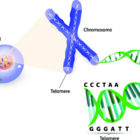
Shortly after my mother turned 90, she moved from her condominium into an assisted living facility. In the months after that move, she suddenly started having problems. She got disoriented and confused. She wasn’t acting like herself. Just before she moved, she had prepared a meal for a dozen people and was discussing the entire event with me the next day.
But now things were different. She was admitted to the hospital, was refusing to eat, and her behavior got progressively worse. I live in Boston and she lived in Houston so my wife and I flew down to see her and try to understand what was happening.
When we got there, she was acting bizarre. She wasn’t eating. For whatever reason, she didn’t have an IV in so she was getting dehydrated.
I went to talk with her nurse to look at her labs and discuss her treatment — why didn’t she have an IV in. Not only didn’t she have an IV in, she had not had a urine culture taken and she wasn’t getting out of bed which carries a risk of blood clots.
To make a long story short, she had become septic from a urinary tract infection (UTI). Now she was septic, meaning the infection was in her bloodstream and spreading all through her body. I am fairly certain she would have died had we not been able to get an IV started, a urine culture taken, and immediately started antibiotics. A day after being on antibiotics, she was alert, eating and drinking, and though a little weaker, pretty much herself.
When we were able to talk, I asked her about whether or not she had been taking her vaginal estrogen. Turns out after she moved, her vaginal estrogen was still in one of the boxes that was not unpacked, and she had stopped taking it. That is a very common cause of UTIs in older women. And those UTIs very often don’t have the usual burning urine and back pain that younger women get with UTIs.
According to a recent study published in Menopause, vaginal estrogen was shown to decrease the risk of UTIs. The reason for this is Genitourinary Syndrome of Menopause (GSM), which refers to thinning and shrinking of the tissues of the vulva and vagina so that the urethra, that little tube where the urine comes out, is more exposed to bacteria. Many women have the GSM menopause symptoms of urinary urgency, frequency, vaginal dryness, dysuria (burning urine) and recurrent UTIs. My mom only had the UTIs, which in older women isn’t uncommon.
This recent study reviewed 30 randomized control trials (RTCs) from 17 countries and completed between 1978 and 2021. They found that vaginal estrogen could help prevent and in one study, even treat UTIs, though many will still need antibiotics. Estrogen pellets and patches did not successfully treat UTIs. Vaginal estrogen definitely treated the symptoms of GSM. They could not say for certain whether oral estrogen might also help with this problem because some of the women in the studies were also taking one of those other options.
So if you have a older parent or grandparent or friend who suddenly starts behaving in an unusual way, keep in mind that the problem may be due to a UTI that doesn’t have any symptoms besides her behavior. That’s what happened to my mom. Talk with her doctor and get a urine culture as soon as possible as part of her workup. And discuss using vaginal estrogen as part of her treatment.
Reference
Christmas MM, Iyler S, Daisy C, Maristany S, Letko J, Hickey M. Menopause hormone therapy and urinary symptoms: a systematic review. Menopause. 2023;30(6):672-685. doi:10.1097/GME.0000000000002187




